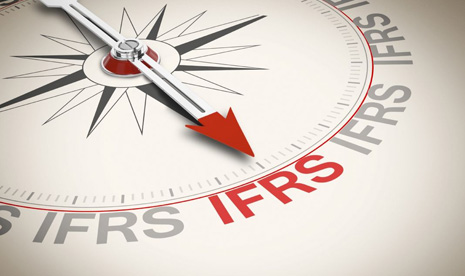IFRS Advisory Services Dubai, UAE.
Scope of IFRS Advisory Services in the UAE
Emirates Chartered Accountants Group - Pioneers in IFRS Advisory Services in Dubai, UAE.

Call for Consultation
Pradeep Sai | Partner
Mob: +971 556530001
Email: sai@emiratesca.com

Impact analysis of adoption and implementation of new/revised IFRS standards.
IFRS impact assessment is one of the IFRS advisory services provided by us. IFRS impact assessment is an assessment conducted when a new or revised accounting standard is implemented in any business from a specific date. Sometimes the value disclosed in the financial statements needs to be changed while comparing with those normally disclosed under existing practice, because of a change in measurement of the item. In some cases, the impact will be only on information disclosed in the financial statement and may not necessarily impact the financial figures. In certain situations, items that were not accounted to date or had a different treatment earlier may change by adopting a new or revised one. In some other cases, the impact could be on both; the financial figures and the disclosure requirements.
Why it is crucial to commence an IFRS impact assessment?
Anyways, whether the impact is on the amount to be recognized or the amount to be measured, or on the disclosure requirements, it is important to analyze the impact on the introduction of IFRS well before preparing the financial statement to report to the stakeholders and/or to the public. The management will then have a fair idea of the impact of such new or revised IFRS well before closing the financial year.
Some of the relevant IFRSs, recently issued/revised or are in the process of release, where the impact of such standards on the financial statements may be material for the entities are given below :
IFRS 15 – Revenue from contract with customers
IFRS 15 focuses on the transfer of control of identifies performance obligations. Based on the nature, terms, and conditions of the contract entered with customers, we will assess how performance obligations meet as per the requirement of the IFRS 15 on revenue from different sources. The source includes but is not limited to Trading, Construction, Services, etc. IFRS 15 provides a single model of all goods and services all goods and services across all industries.
The IFRS 15 Impact assessment as part of our IFRS advisory services will cover broadly the following:
- Identifying the contract with customers & identifying performance obligation
- Whether performance obligations are happening at a specific point of time or over a period of time will be primarily evaluated based on the criteria suggested by IFRS 15.
- Recognition of contract costs, allocation of transaction price will also be verified.
- Identify the timing of revenue recognition
- Will check and analyze whether any modification is required in the contract with customers to comply with IFRS 15.
- The need for a significant revision in estimates will be evaluated.
- Identify areas of critical judgment and interpretation
- Extensive Disclosure requirements as per the new standard will be suggested.
IFRS 16 – Leases
For IFRS 16 – Leases, our IFRS advisory services will broadly cover the following:
- Identify the lease contract for property or any other asset and check the applicability of IFRS 16.
- Any sublease to other parties.
- Lease accounting review, if required.
- Advise on the determination of discount rates, the period of the lease, etc.
- Guidance for preparing the Lease amortization table.
- Guidance on the transition method
- Recommend changes in IT systems and processes to cope up with the requirement of IFRS 16
- Disclosure requirements as per the standard.
IFRS 9 – Financial Instruments
As per IFRS 9 – Financial Instruments, the impact assessment will cover broadly the following:
- Classification & measurement of Financial Assets & Financial Liabilities.
- Impairment of financial assets & liabilities as per 3 stages impairment model.
- Applying IFRS 9 through practical expedients.
- Disclosure requirements as per standard.
The need for an impairment allowance is one of the requirements under IFRS 9 – financial instruments. It has to be done on a periodic basis and the change in the impairment allowance has to be reported in the profit and loss account.
IFRS 17- Insurance Contracts
IFRS 17 requires insurance liabilities to be measured at a current fulfillment value and provides a more uniform measurement and presentation approach for all insurance contracts. IFRS 17 supersedes IFRS 4 Insurance Contracts and related interpretations and is effective for periods beginning on or after 1 January 2023, with earlier adoption permitted if both IFRS 15 Revenue from Contracts with Customers and IFRS 9 Financial instruments have also been applied.

Other IFRS Advisory Services in the UAE
- Preparation of Accounting Policy / IFRS Manual.
- Training on IFRS’s.
- Implementation assistance for IFRS,s standards like IFRS 16, IFRS 9, and IFRS 15, etc.

